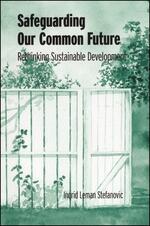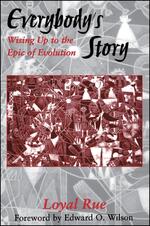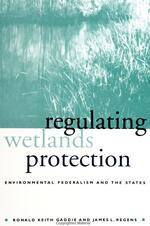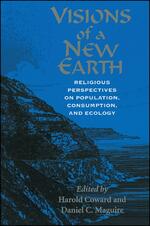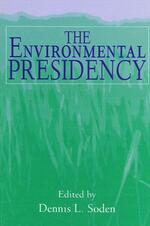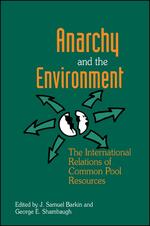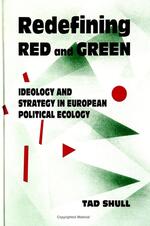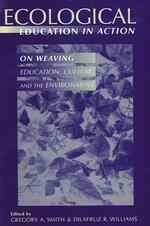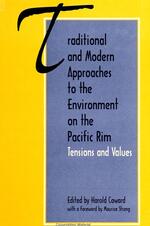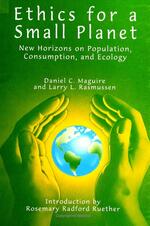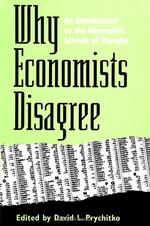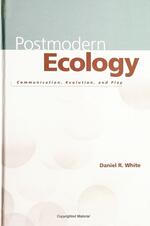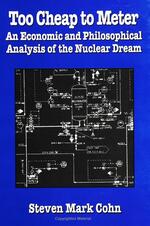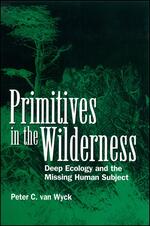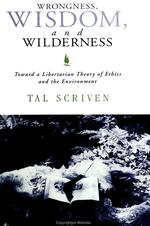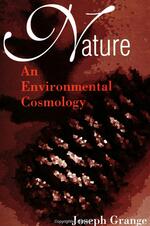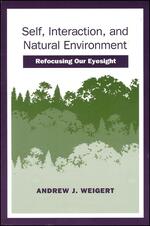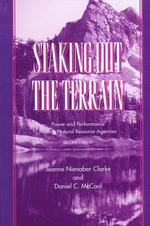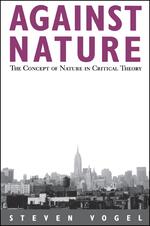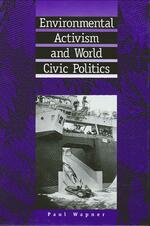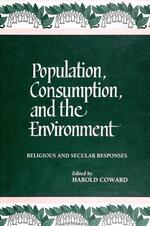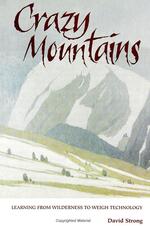Environmental Studies
Safeguarding Our Common Future
Utilizes Heidegger in rethinking common environmental paradigms.
Inside the Olympic Industry
Analysis from the perspective of those adversely affected by the social, economic, political, and environmental impacts of hosting an Olympic Games.
Everybody's Story
This exhilarating tale of natural history illuminates the evolution of matter, life, and consciousness. In Everybody’s Story, Loyal Rue finds the means for global solidarity and cooperation in the shared story of humanity.
Regulating Wetlands Protection
Wetlands are a valuable natural resource, yet over 200,000 acres are destroyed in the United States per year. This book examines whether states should assume the role of protecting wetlands rather than the federal government.
Visions of a New Earth
Brings together world religion scholars and creative international economists to address the current eco-crisis.
The Environmental Presidency
Examines how the modern presidency has responded to environmental concerns.
Anarchy and the Environment
Argues that the logic of common pool resources is the most appropriate and productive way to understand international environmental conflict, and offers important practical insights into environmental negotiations and bargaining.
Redefining Red and Green
Examines the strategic impact of two European ecology parties on the recomposition of left-wing politics in their countries.
Ethical Vegetarianism
For vegetarians seeking the historical roots of vegetarianism, for animal rights activists and the environmentally concerned, and for those questioning their consumption of meat, here's a book that provides ...
Ecological Education in Action
Celebrates the work of educators who explore ecological issues in school and non-school settings. Gives examples of ways to impact the thinking of children and adults in order to affirm the values of sufficiency, mutual support, and community.
For the Time Being
Through the sharing of one man's life and photographs, this ethnography of human existence covers religion, philosophy, literature, the environment, visual arts, music, drama, literary criticism, sociology, and the psychology of self.
Traditional and Modern Approaches to the Environment on the Pacific Rim
An interdisciplinary exploration of the tension between traditional and modern approaches to the environment in Pacific Rim countries.
Ethics for a Small Planet
A radical new look at the religious, economic, and political roots of terracide and how things can change for the better.
Why Economists Disagree
Provides a convenient introduction to heterodox alternatives to neoclassical economics.
Postmodern Ecology
Provides a significant picture of the ecological crisis from the interdisciplinary perspective of postcolonial cultural studies, in order to map the emerging virtual and ecological territories of the twenty-first century "electropolis."
Too Cheap to Meter
Uses concepts from social theory to explore the history and future of nuclear power in the U. S. and to explore the nature of technological change in the U. S. economy.
Primitives in the Wilderness
Brings the radical environmentalism known as deep ecology into an encounter with contemporary social and cultural theory, showing that deep ecology still has much to learn from such theory.
Wrongness, Wisdom, and Wilderness
Defends a libertarian social ethic that can support government action in pursuit of social goals and offers a new perspective on the relationship between social ethics, personal ethics, and environmental ethics.
Nature
Provides a set of normative measure sto assess the value of nature and proposes the new discipline of foundational ecology as a response to environmental crisis.
Self, Interaction, and Natural Environment
Provides a framework for sharing a more adequate view of human-environment relations and contributes to the development of an ecologically aware sense of self-understanding.
Staking Out the Terrain
An original approach to the study of bureaucratic behavior that formulates a model of agency power supported by analysis of seven federal natural resource agencies.
Against Nature
Argues that the tradition of critical theory has had significant problems dealing with the concept of nature and that their solutions require taking seriously the idea of nature as socially constructed.
Environmental Activism and World Civic Politics
A theoretical study of the politics of transnational environmental activist groups such as Greenpeace, Friends of the Earth, and the World Wildlife Fund that argues that environmental activists practice ...
Population, Consumption, and the Environment
Shows how the major world religions view the environmental problems of over population and excess resource consumption, and how they approach possible solutions.
Crazy Mountains
In the tradition of Walden and A River Runs Through It, this is a vivid account of the Crazy Mountains in Montana, urging us to awaken from the spell of technology.
